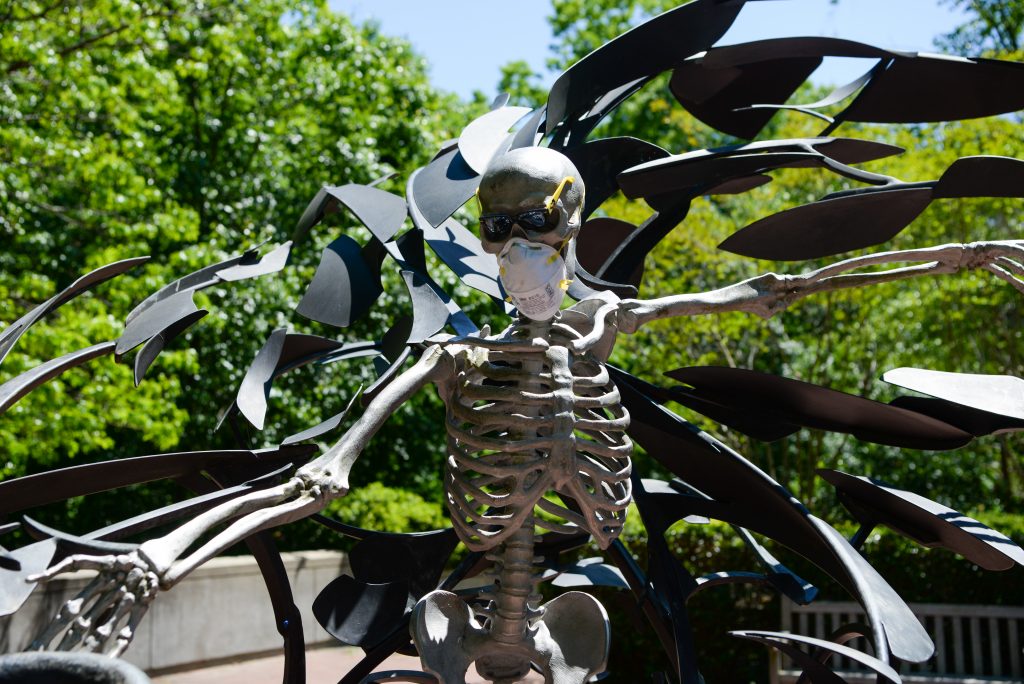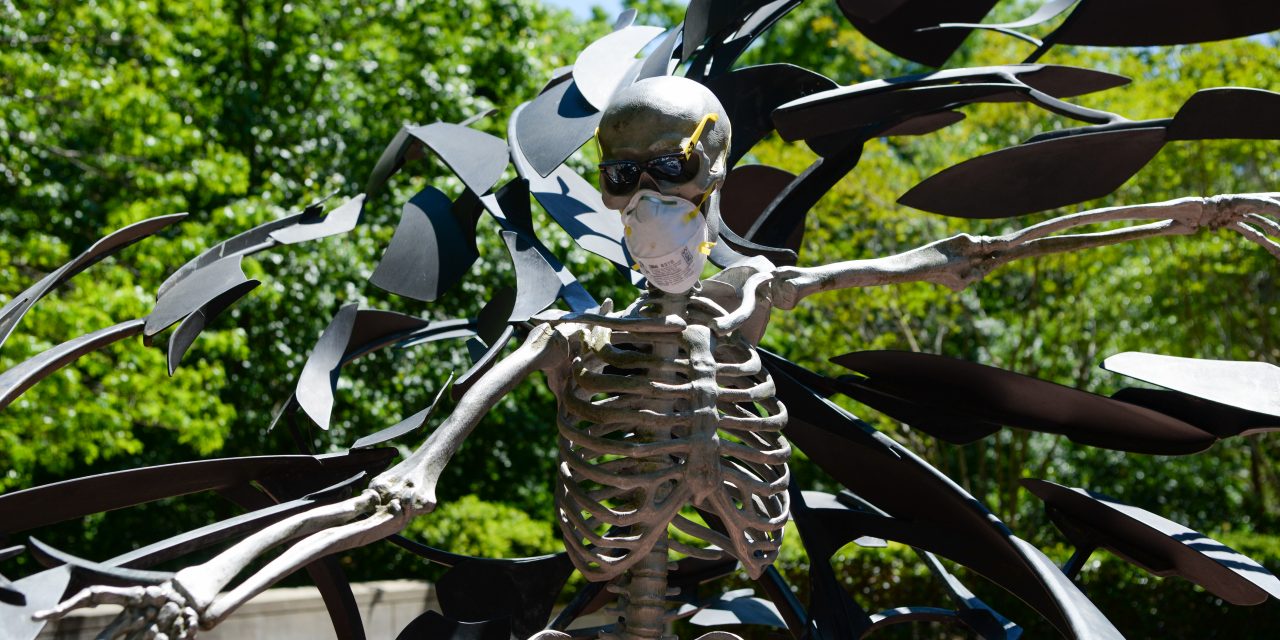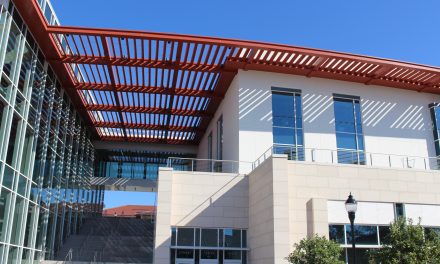On June 11, Outgoing President Claire Sterk and President-elect Gregory Fenves answered the question that loomed over students since the campus closure in March: Will Emory reopen for the fall? They answered yes, with restrictions. Now the question becomes, is returning worth it?

With a myriad of restrictions planned for the fall, students are uncertain whether returning to campus is worth Emory’s price tag./Forrest Martin
Some students, longing to return to campus life and exasperated with the countless tribulations of remote learning, have inundated social media feeds with comments of relief and joy. Some, however, have not shared in this excitement, noting that Emory would be virtually unrecognizable from the safety protocols put in place. What will become of housing, financial aid and campus life more generally?
Six days after its reopening email, Emory followed up with a five-minute survey for students to weigh in on what a college campus in the midst of a pandemic should look like.
Gabriele Kim (23C) noted that students are still missing crucial information regarding tuition payments necessary to make a decision about whether to return to campus.
“They want us to do a survey about coming back when we don’t even know how much we’re paying next year with financial aid,” Kim said.
Although the University stated tuition would be “uniformly applied” across online and in-person classes for the fall semester, students have not been updated on their financial aid status, leaving them in the dark about the feasibility of returning.
For some, a heavily modified campus life is simply not worth Emory’s price tag, especially with the omnipresent threat of COVID-19.
“Since receiving the news about the campus reopening, I’ve wondered: Is the modified campus experience worth the thousands of dollars of room and board?” Kyra Mitchell (22C) questioned. “I am struggling to imagine an enjoyable campus experience with the physical distancing measures in place.”
The reopening plan also included possible room reassignments for those living on campus, in an effort to reduce residence hall density and social gatherings. Volatile housing prospects left Mitchell wondering if staying at home would be a safer option.
Mitchell also remained reluctant about Emory’s ability to maintain safety protocols, given their enforcement will be largely peer-enforced.
Emory’s guidelines will require students to complete online training before campus arrival, wear face coverings and comply with social distancing standards while on campus.
While reuniting with friends is one reason Mitchell is considering her return, she is concerned about the possibility of another sudden closure. Having to scramble in a matter of days is not something she wants to relive, she said, and such uncertainty has further muddied her decision-making process.
“I’m almost certain that I’d be overwhelmed with anxiety about the possibility of catching COVID-19 that would undoubtedly distract me from my studies,” Mitchell said. “I’d like to be near my friends, but with physical distancing, would I really be able to enjoy our time together?”
For other students, reunification with professors is just as important as with friends. For them, receiving in-person education is their biggest priority. Nicholas Keung (23C) said when considering Emory’s high cost, he expects high-quality education rather than modified online courses.
“I would like to come back for on-campus courses because online classes, as hard as professors work, are not effective ways for me to learn,” Keung said. “In my experience, the education I got from a screen can’t compare to on-campus, even if the course is the same.”
As long as tuition remains the same across online and in-person classes, Keung will return for the fall semester. He hopes students follow the safety guidelines set by the school, noting that such measures would justify the unchanging cost of attendance.
Other students are worried that the incoming Class of 2024 will not be able to enjoy their first-year experience. Sandra Bourdon (23C) reflected on her own time as a first-year and noted that mandatory COVID-19 testing, quarantine dorms and sparse outdoor dining areas will be anything but the traditional first-year experience that was afforded to older students.
She mulled over the Class of 2024’s unprecedented hardships and their impaired version of the college experience.
“The residence hall experience played a major role in my adjustment to college life,” Bourdon said. “Imagine freshman year without Songfest, Student Activities Fair or Best in Show.”
On July 1, Emory’s student housing agreement will close. For many, it’s an impending deadline to make a gut wrenching decision on their return. While students like Mitchell are concerned that each move toward reopening is a step in the wrong direction, others like Keung are certain that an experience on campus is more valuable than a virtual one.
Despite a semester still teeming with unanswered questions, Emory’s reopening plan allows for both remote and in-person instruction, granting students the freedom to craft their own fall experience.
Kaitlin Mottley (she/her) (23C) is from Memphis, Tennessee, majoring in English. Outside of the Wheel, Kaitlin has interned as a Content Designer at Meta and enjoys copyediting for other Emory organizations. She also enjoys reading, writing and watching classic films.







Excellent read!